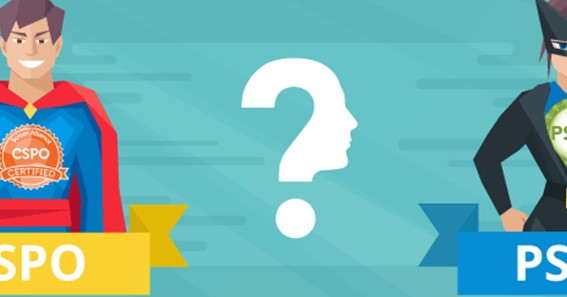What do you understand by CSPO®?
The Scrum Alliance has defined CSPO® or Certified Scrum Product Owner® as someone who has gained their CSPO® training course about the principles, practices, and Scrum terminologies that will ultimately allow them to fulfill the position of a Scrum Product Owner from a Certified Scrum Trainer or CST. Read here to know CSPO Course in London.
What do you understand by PSPO®?
Professional Scrum Product Owner, also known as PSPO®, is a certification training course that is provided by Scrum.org. The mission of Scrum.org is to refine the role of a Software Developer.
The Basic Comparison of Professional Scrum Product Owner and Certified Scrum Product Owner®
While the CSPO® training course is offered by Scrum Alliance®, the PSPO® certification is offered by Scrum.org. The Certified Scrum Product Owner® certification has steady credit requirements of education in an interval of three years. It is also a renewable course. PSPO®, on the other hand, need not ever be renewed.
Body of Authorization
The body of authorization of the PSPO® and CSPO® training certifications are as follows:
- Certified Scrum Product Owner® – Scrum Alliance
- Professional Scrum Product Owner – Scrum.org
Renewal of PSPO® and CSPO® Certifications
- CSPO® – Once you have earned the CSPO® certification, the credential will be valid for the next two years. If you wish to renew your certification, you will have to provide 100 USD as a renewal fee and 20 educational units of Scrum.
- PSPO® – After you have earned the PSPO® certification, you do not need to renew it for the credential does not ever expire.
Click here – How Do You Structure A Facebook Video Ad?
Requirements for Training
- CSPO® – In order to acquire the CSPO® certification, the candidate has to attend the two days classroom training of CSPO® from a CST® or Certified Scrum Trainer® provided by the Scrum Alliance.
- PSPO® – For the PSPO® certification, the candidate does not need to take up a course for training.
After Examination Certification
CSPO® does not require the candidate to appear for any examination. Once they complete the training of fourteen to sixteen hours from a Certified Scrum Trainer, the candidates receive their certification from Scrum Alliance. When it comes to the PSPO®, the candidate has to appear for and clear the PSPO® I examination. After that, they will get the PSPO® I certification which is recognized by the industry. Along with the certification, they will also get a logo of PSPO® I which they can use to identify their achievement.
Passing Score
- CSPO® – Nil. In order to achieve the credential, the candidates have to complete activities at the discretion of the trainer.
- PSPO® – Eighty-five percent
Time Limit
- Certified Scrum Product Owner® – None
- Professional Scrum Product Owner – Sixty minutes
Language
- CSPO® – Nil
- PSPO® – English
Format
- CSPO® – Nil
- PSPO® – MCQ or Multiple-Choice Questions and True or False
Number of Questions
- CSPO® – Nil
- PSPO® – Eighty
Level of Difficulty
- CSPO® – Nil
- PSPO® – Intermediate
Now, before you make the final decision between PSPO® and CSPO®, remember that in the case of earning certifications, it is best to demonstrate your commitment and willingness to self-improvement, get the skills endorsed, and get recognized by potential recruiters.
FAQ
Which One Is Better PSPO Or CSPO?
Focused Area : CSPO focus more on understanding scrum working model & PO role in Scrum Team. Whereas PSPO focus more on understanding Product Owner role so that one can maximize the value of product/application.
Should I Do Product Owner Certification Or Scrum Master?
The Product Owner also takes care of the Product Backlog and successfully predicts the work that will lead to a successful product. On the other hand, the Scrum Master is more of a tactician, someone who notices issues and reacts to them in a way that removes the impediments but also empowers the team as a whole.
Click here – 5 Reasons Why a Python Course is a Must!



